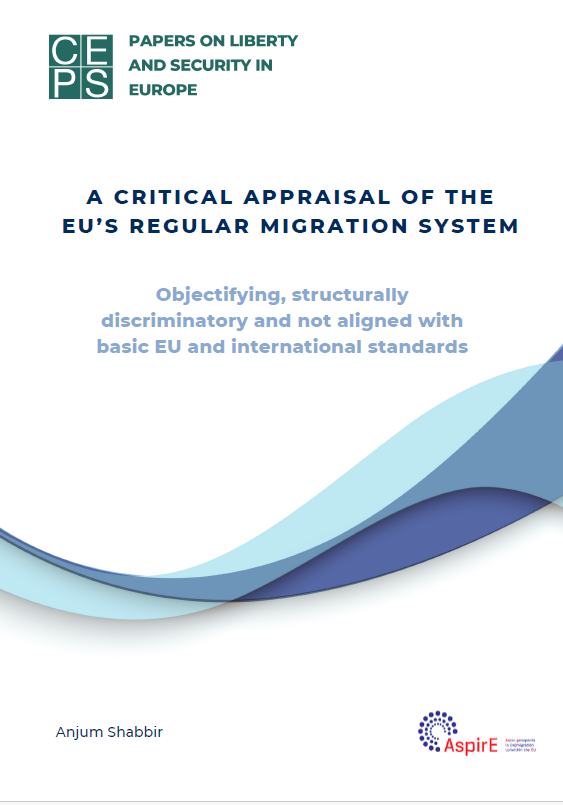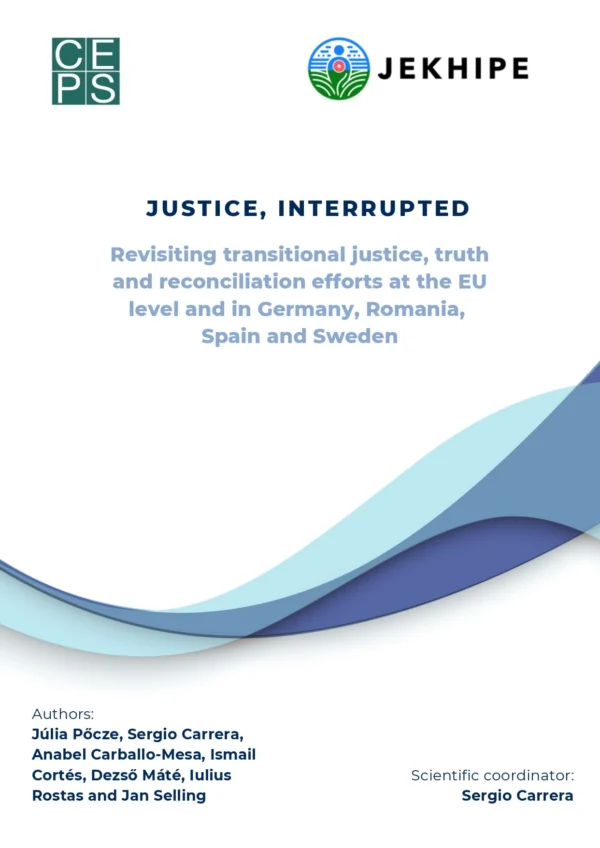This Policy Brief largely draws from the key findings of an EU-level report produced for the EU-funded AspirE project, and interviews held with EU officials within the context of this project. It focuses on policy issues impacting the EU’s current regular migration policy on how people who are not from an EU country – third country nationals – can move to and stay in the EU through legal channels. It shows that EU policy goals combined with the specific way they are expressed under EU law result in some main policy problems. In short, a system has been created that:
- objectifies third country nationals and embeds structural discrimination against them;
- is made up of an overly complex and fragmented acquis of law that goes against the principles of transparency, legal certainty, and legal clarity (i.e. the quality of a law), which is very difficult for a third country national to follow and understand;
- does not sufficiently meet certain core and basic EU and international legal standards that third country nationals who have moved to the EU should benefit from and so that they can have agency over their own lives. For example, the right to human dignity, non-discrimination, decent working conditions, facilitated transitions and social cohesion; and
- can be an indirect cause of a third country national falling into a state of irregular migration.
This Policy Brief includes recommendations for a more humanising approach that the AspirE project has adopted. This approach considers third country nationals as individuals with rights and agency over their own lives.









